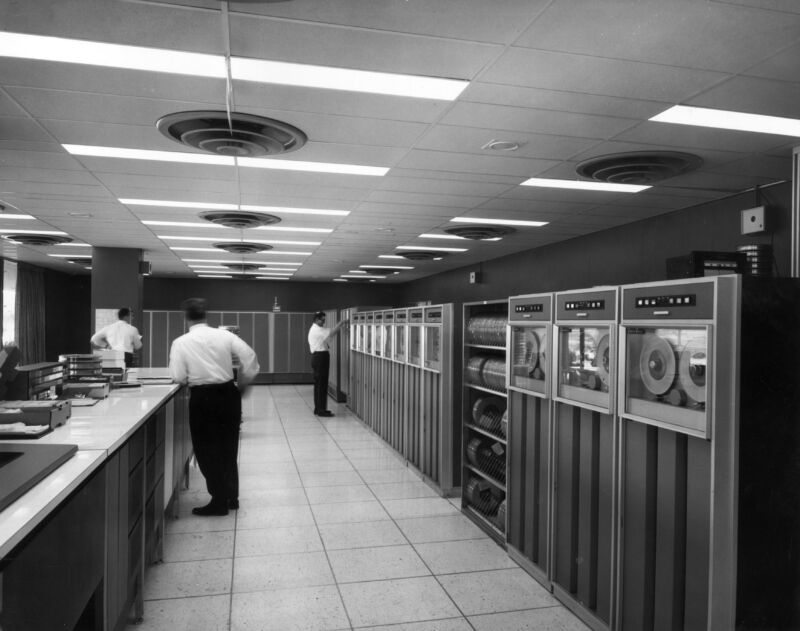
The COBOL programming language was created in 1959 and has been widely seen as obsolete for decades. Yet there are still a fair number of software systems based on the language. The economic stresses of the coronavirus pandemic have created a surge in demand for COBOL programmers. Last week, for example, the governor of New Jersey put out a call for COBOL programmers to help fix problems with the software that runs the state’s unemployment insurance system.
A new initiative from IBM seeks to connect states with experienced COBOL programmers—and to train a new generation of them.
“In the midst of the COVID-19 global pandemic, our clients are facing unprecedented circumstances,” an IBM press release says. Some states “are in need of additional programming skills to make changes to COBOL—a language that has been widely reported to have an estimated 220 billion lines of code being actively used today.”
A new online forum, co-sponsored by the Open Mainframe Project, aims to connect COBOL programmers to people wanting to hire them. Several hundred COBOL programmers—some with decades of experience, others just learning the language—have submitted their information to the site.
A second forum is “being actively monitored by experienced COBOL programmers providing free advice and expertise during the crisis. This tool will allow all levels of programmers to manage issues, learn new techniques, and expedite solutions needed as programmers alter this critical code.”
IBM is also working on a free COBOL training course. The company has posted some material to Github, though it falls short of a full COBOL training course. IBM’s announcement says that the material “will be made into a self-service video course with hands-on labs and tutorials available via Coursera and other learning platforms next month.”
It may not be feasible to train new COBOL programmers in time for them to help with urgent problems like New Jersey’s creaky unemployment insurance system. But it doesn’t look like COBOL will be going away any time soon, and today’s most experienced COBOL programmers aren’t getting any younger.
https://arstechnica.com/?p=1667866

